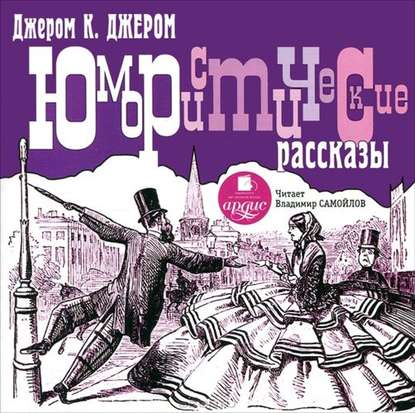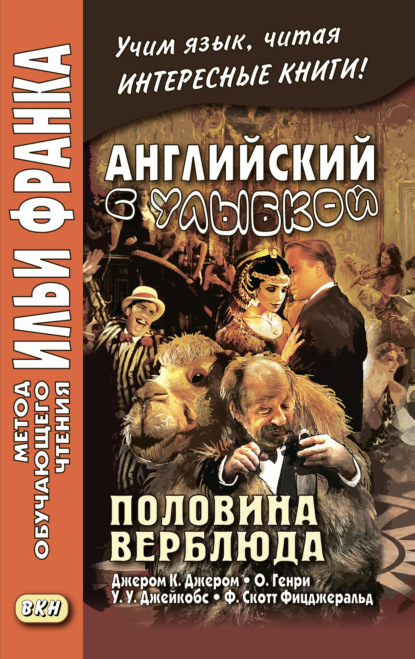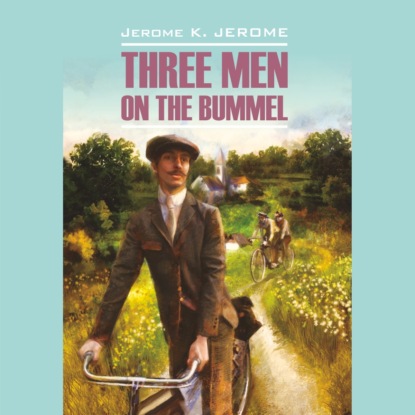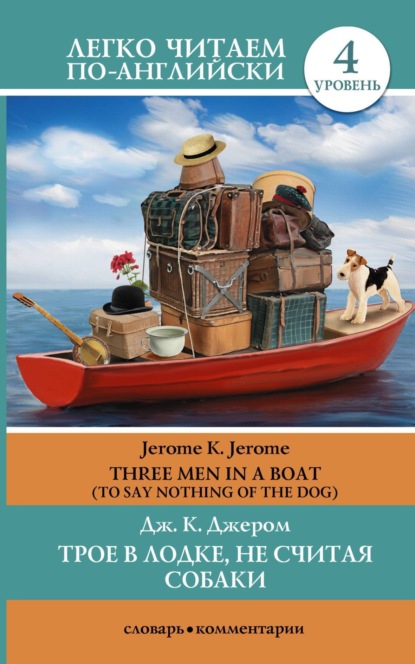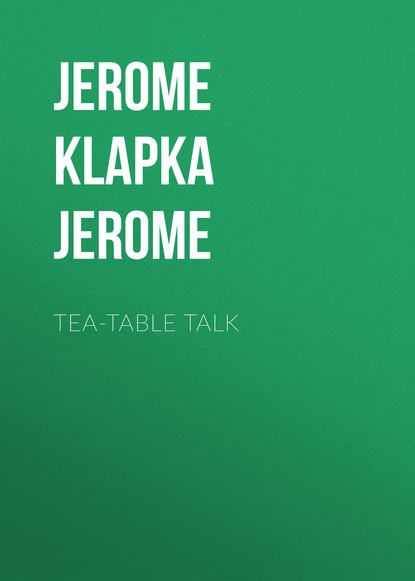 Полная версия
Полная версияПолная версия:
Джером Клапка Джером Tea-Table Talk
- + Увеличить шрифт
- - Уменьшить шрифт

Jerome K. Jerome
Tea-Table Talk
I
“They are very pretty, some of them,” said the Woman of the World; “not the sort of letters I should have written myself.”
“I should like to see a love-letter of yours,” interrupted the Minor Poet.
“It is very kind of you to say so,” replied the Woman of the World. “It never occurred to me that you would care for one.”
“It is what I have always maintained,” retorted the Minor Poet; “you have never really understood me.”
“I believe a volume of assorted love-letters would sell well,” said the Girton Girl; “written by the same hand, if you like, but to different correspondents at different periods. To the same person one is bound, more or less, to repeat oneself.”
“Or from different lovers to the same correspondent,” suggested the Philosopher. “It would be interesting to observe the response of various temperaments exposed to an unvaried influence. It would throw light on the vexed question whether the qualities that adorn our beloved are her own, or ours lent to her for the occasion. Would the same woman be addressed as ‘My Queen!’ by one correspondent, and as ‘Dear Popsy Wopsy!’ by another, or would she to all her lovers be herself?”
“You might try it,” I suggested to the Woman of the World, “selecting, of course, only the more interesting.”
“It would cause so much unpleasantness, don’t you think?” replied the Woman of the World. “Those I left out would never forgive me. It is always so with people you forget to invite to a funeral – they think it is done with deliberate intention to slight them.”
“The first love-letter I ever wrote,” said the Minor Poet, “was when I was sixteen. Her name was Monica; she was the left-hand girl in the third joint of the crocodile. I have never known a creature so ethereally beautiful. I wrote the letter and sealed it, but I could not make up my mind whether to slip it into her hand when we passed them, as we usually did on Thursday afternoons, or to wait for Sunday.”
“There can be no question,” murmured the Girton Girl abstractedly, “the best time is just as one is coming out of church. There is so much confusion; besides, one has one’s Prayer-book – I beg your pardon.”
“I was saved the trouble of deciding,” continued the Minor Poet. “On Thursday her place was occupied by a fat, red-headed girl, who replied to my look of inquiry with an idiotic laugh, and on Sunday I searched the Hypatia House pews for her in vain. I learnt subsequently that she had been sent home on the previous Wednesday, suddenly. It appeared that I was not the only one. I left the letter where I had placed it, at the bottom of my desk, and in course of time forgot it. Years later I fell in love really. I sat down to write her a love-letter that should imprison her as by some subtle spell. I would weave into it the love of all the ages. When I had finished it, I read it through and was pleased with it. Then by an accident, as I was going to seal it, I overturned my desk, and on to the floor fell that other love-letter I had written seven years before, when a boy. Out of idle curiosity I tore it open; I thought it would afford me amusement. I ended by posting it instead of the letter I had just completed. It carried precisely the same meaning; but it was better expressed, with greater sincerity, with more artistic simplicity.”
“After all,” said the Philosopher, “what can a man do more than tell a woman that he loves her? All the rest is mere picturesque amplification, on a par with the ‘Full and descriptive report from our Special Correspondent,’ elaborated out of a three-line telegram of Reuter’s.”
“Following that argument,” said the Minor Poet, “you could reduce ‘Romeo and Juliet’ to a two-line tragedy —
Lass and lad, loved like mad;Silly muddle, very sad.”“To be told that you are loved,” said the Girton Girl, “is only the beginning of the theorem – its proposition, so to speak.”
“Or the argument of the poem,” murmured the Old Maid.
“The interest,” continued the Girton Girl, “lies in proving it – why does he love me?”
“I asked a man that once,” said the Woman of the World. “He said it was because he couldn’t help it. It seemed such a foolish answer – the sort of thing your housemaid always tells you when she breaks your favourite teapot. And yet, I suppose it was as sensible as any other.”
“More so,” commented the Philosopher. “It is the only possible explanation.”
“I wish,” said the Minor Poet, “it were a question one could ask of people without offence; I so often long to put it. Why do men marry viragoes, pimply girls with incipient moustaches? Why do beautiful heiresses choose thick-lipped, little men who bully them? Why are old bachelors, generally speaking, sympathetic, kind-hearted men; and old maids, so many of them, sweet-looking and amiable?”
“I think,” said the Old Maid, “that perhaps – ” But there she stopped.
“Pray go on,” said the Philosopher. “I shall be so interested to have your views.”
“It was nothing, really,” said the Old Maid; “I have forgotten.”
“If only one could obtain truthful answers,” the Minor Poet, “what a flood of light they might let fall on the hidden half of life!”
“It seems to me,” said the Philosopher, “that, if anything, Love is being exposed to too much light. The subject is becoming vulgarised. Every year a thousand problem plays and novels, poems and essays, tear the curtain from Love’s Temple, drag it naked into the market-place for grinning crowds to gape at. In a million short stories, would-be comic, would-be serious, it is handled more or less coarsely, more or less unintelligently, gushed over, gibed and jeered at. Not a shred of self-respect is left to it. It is made the central figure of every farce, danced and sung round in every music-hall, yelled at by gallery, guffawed at by stalls. It is the stock-in-trade of every comic journal. Could any god, even a Mumbo Jumbo, so treated, hold its place among its votaries? Every term of endearment has become a catchword, every caress mocks us from the hoardings. Every tender speech we make recalls to us even while we are uttering it a hundred parodies. Every possible situation has been spoilt for us in advance by the American humorist.”
“I have sat out a good many parodies of ‘Hamlet,’” said the Minor Poet, “but the play still interests me. I remember a walking tour I once took in Bavaria. In some places the waysides are lined with crucifixes that are either comic or repulsive. There is a firm that turns them out by machinery. Yet, to the peasants who pass by, the Christ is still beautiful. You can belittle only what is already contemptible.”
“Patriotism is a great virtue,” replied the Philosopher: “the Jingoes have made it ridiculous.”
“On the contrary,” said the Minor Poet, “they have taught us to distinguish between the true and the false. So it is with love. The more it is cheapened, ridiculed, employed for market purposes, the less the inclination to affect it – to be in love with love, as Heine admitted he was, for its own sake.”
“Is the necessity to love born in us,” said the Girton Girl, “or do we practise to acquire it because it is the fashion – make up our mind to love, as boys learn to smoke, because every other fellow does it, and we do not like to be peculiar?”
“The majority of men and women,” said the Minor Poet, “are incapable of love. With most it is a mere animal passion, with others a mild affection.”
“We talk about love,” said the Philosopher, “as though it were a known quantity. After all, to say that a man loves is like saying that he paints or plays the violin; it conveys no meaning until we have witnessed his performance. Yet to hear the subject discussed, one might imagine the love of a Dante or a society Johnny, of a Cleopatra or a Georges Sand, to be precisely the same thing.”
“It was always poor Susan’s trouble,” said the Woman of the World; “she could never be persuaded that Jim really loved her. It was very sad, because I am sure he was devoted to her, in his way. But he could not do the sort of things she wanted him to do; she was so romantic. He did try. He used to go to all the poetical plays and study them. But he hadn’t the knack of it and he was naturally clumsy. He would rush into the room and fling himself on his knees before her, never noticing the dog, so that, instead of pouring out his heart as he had intended, he would have to start off with, ‘So awfully sorry! Hope I haven’t hurt the little beast?’ Which was enough to put anybody out.”
“Young girls are so foolish,” said the Old Maid; “they run after what glitters, and do not see the gold until it is too late. At first they are all eyes and no heart.”
“I knew a girl,” I said, “or, rather, a young married woman, who was cured of folly by the homoeopathic method. Her great trouble was that her husband had ceased to be her lover.”
“It seems to me so sad,” said the Old Maid. “Sometimes it is the woman’s fault, sometimes the man’s; more often both. The little courtesies, the fond words, the tender nothings that mean so much to those that love – it would cost so little not to forget them, and they would make life so much more beautiful.”
“There is a line of common sense running through all things,” I replied; “the secret of life consists in not diverging far from it on either side. He had been the most devoted wooer, never happy out of her eyes; but before they had been married a year she found to her astonishment that he could be content even away from her skirts, that he actually took pains to render himself agreeable to other women. He would spend whole afternoons at his club, slip out for a walk occasionally by himself, shut himself up now and again in his study. It went so far that one day he expressed a distinct desire to leave her for a week and go a-fishing with some other men. She never complained – at least, not to him.”
“That is where she was foolish,” said the Girton Girl. “Silence in such cases is a mistake. The other party does not know what is the matter with you, and you yourself – your temper bottled up within – become more disagreeable every day.”
“She confided her trouble to a friend,” I explained.
“I so dislike people who do that,” said the Woman of the World. “Emily never would speak to George; she would come and complain about him to me, as if I were responsible for him: I wasn’t even his mother. When she had finished, George would come along, and I had to listen to the whole thing over again from his point of view. I got so tired of it at last that I determined to stop it.”
“How did you succeed?” asked the Old Maid, who appeared to be interested in the recipe.
“I knew George was coming one afternoon,” explained the Woman of the World, “so I persuaded Emily to wait in the conservatory. She thought I was going to give him good advice; instead of that I sympathised with him and encouraged him to speak his mind freely, which he did. It made her so mad that she came out and told him what she thought of him. I left them at it. They were both of them the better for it; and so was I.”
“In my case,” I said, “it came about differently. Her friend explained to him just what was happening. She pointed out to him how his neglect and indifference were slowly alienating his wife’s affections from him. He argued the subject.
“‘But a lover and a husband are not the same,’ he contended; ‘the situation is entirely different. You run after somebody you want to overtake; but when you have caught him up, you settle down quietly and walk beside him; you don’t continue shouting and waving your handkerchief after you have gained him.’
“Their mutual friend presented the problem differently.”
“‘You must hold what you have won,’ she said, ‘or it will slip away from you. By a certain course of conduct and behaviour you gained a sweet girl’s regard; show yourself other than you were, how can you expect her to think the same of you?’
“‘You mean,’ he inquired, ‘that I should talk and act as her husband exactly as I did when her lover?’
“‘Precisely,’ said the friend; ‘why not?’
“‘It seems to me a mistake,’ he grumbled.
“‘Try it and see,’ said the friend.
“‘All right,’ he said, ‘I will.’ And he went straight home and set to work.”
“Was it too late,” asked the Old Maid, “or did they come together again?”
“For the next mouth,” I answered, “they were together twenty-four hours of the day. And then it was the wife who suggested, like the poet in Gilbert’s Patience, the delight with which she would welcome an occasional afternoon off.”
“He hung about her while she was dressing in the morning. Just as she had got her hair fixed he would kiss it passionately and it would come down again. All meal-time he would hold her hand under the table and insist on feeding her with a fork. Before marriage he had behaved once or twice in this sort of way at picnics; and after marriage, when at breakfast-time he had sat at the other end of the table reading the paper or his letters, she had reminded him of it reproachfully. The entire day he never left her side. She could never read a book; instead, he would read to her aloud, generally Browning’ poems or translations from Goethe. Reading aloud was not an accomplishment of his, but in their courting days she had expressed herself pleased at his attempts, and of this he took care, in his turn, to remind her. It was his idea that if the game were played at all, she should take a hand also. If he was to blither, it was only fair that she should bleat back. As he explained, for the future they would both be lovers all their life long; and no logical argument in reply could she think of. If she tried to write a letter, he would snatch away the paper her dear hands were pressing and fall to kissing it – and, of course, smearing it. When he wasn’t giving her pins and needles by sitting on her feet he was balancing himself on the arm of her chair and occasionally falling over on top of her. If she went shopping, he went with her and made himself ridiculous at the dressmaker’s. In society he took no notice of anybody but of her, and was hurt if she spoke to anybody but to him. Not that it was often, during that month, that they did see any society; most invitations he refused for them both, reminding her how once upon a time she had regarded an evening alone with him as an entertainment superior to all others. He called her ridiculous names, talked to her in baby language; while a dozen times a day it became necessary for her to take down her back hair and do it up afresh. At the end of a month, as I have said, it was she who suggested a slight cessation of affection.”
“Had I been in her place,” said the Girton Girl, “it would have been a separation I should have suggested. I should have hated him for the rest of my life.”
“For merely trying to agree with you?” I said.
“For showing me I was a fool for ever having wanted his affection,” replied the Girton Girl.
“You can generally,” said the Philosopher, “make people ridiculous by taking them at their word.”
“Especially women,” murmured the Minor Poet.
“I wonder,” said the Philosopher, “is there really so much difference between men and women as we think? What there is, may it not be the result of Civilisation rather than of Nature, of training rather than of instinct?”
“Deny the contest between male and female, and you deprive life of half its poetry,” urged the Minor Poet.
“Poetry,” returned the Philosopher, “was made for man, not man for poetry. I am inclined to think that the contest you speak of is somewhat in the nature of a ‘put-up job’ on the part of you poets. In the same way newspapers will always advocate war; it gives them something to write about, and is not altogether unconnected with sales. To test Nature’s original intentions, it is always safe to study our cousins the animals. There we see no sign of this fundamental variation; the difference is merely one of degree.”
“I quite agree with you,” said the Girton Girl. “Man, acquiring cunning, saw the advantage of using his one superiority, brute strength, to make woman his slave. In all other respects she is undoubtedly his superior.”
“In a woman’s argument,” I observed, “equality of the sexes invariably does mean the superiority of woman.”
“That is very curious,” added the Philosopher. “As you say, a woman never can be logical.”
“Are all men logical?” demanded the Girton Girl.
“As a class,” replied the Minor Poet, “yes.”
II
“What woman suffers from,” said the Philosopher, “is over-praise. It has turned her head.”
“You admit, then, that she has a head?” demanded the Girton Girl.
“It has always been a theory of mine,” returned the Philosopher, “that by Nature she was intended to possess one. It is her admirers who have always represented her as brainless.”
“Why is it that the brainy girl invariably has straight hair?” asked the Woman of the World.
“Because she doesn’t curl it,” explained the Girton Girl. She spoke somewhat snappishly, it seemed to me.
“I never thought of that,” murmured the Woman of the World.
“It is to be noted in connection with the argument,” I ventured to remark, “that we hear but little concerning the wives of intellectual men. When we do, as in the case of the Carlyles, it is to wish we did not.”
“When I was younger even than I am now,” said the Minor Poet, “I thought a good deal of marriage – very young men do. My wife, I told myself, must be a woman of mind. Yet, curiously, of all the women I have ever loved, no single one has been remarkable for intellect – present company, as usual, of course excepted.”
“Why is it,” sighed the Philosopher, “that in the most serious business of our life, marriage, serious considerations count for next to nothing? A dimpled chin can, and often does, secure for a girl the best of husbands; while virtue and understanding combined cannot be relied upon to obtain her even one of the worst.”
“I think the explanation is,” replied the Minor Poet, “that as regards, let us say, the most natural business of our life, marriage, our natural instincts alone are brought into play. Marriage – clothe the naked fact in what flowers of rhetoric we will – has to do with the purely animal part of our being. The man is drawn towards it by his primeval desires; the woman by her inborn craving towards motherhood.”
The thin, white hands of the Old Maid fluttered, troubled, where they lay upon her lap. “Why should we seek to explain away all the beautiful things of life?” she said. She spoke with a heat unusual to her. “The blushing lad, so timid, so devotional, worshipping as at the shrine of some mystic saint; the young girl moving spell-bound among dreams! They think of nothing but of one another.”
“Tracing a mountain stream to its sombre source need not mar its music for us as it murmurs through the valley,” expounded the Philosopher. “The hidden law of our being feeds each leaf of our life as sap runs through the tree. The transient blossom, the ripened fruit, is but its changing outward form.”
“I hate going to the roots of things,” said the Woman of the World. “Poor, dear papa was so fond of doing that. He would explain to us the genesis of oysters just when we were enjoying them. Poor mamma could never bring herself to touch them after that. While in the middle of dessert he would stop to argue with my Uncle Paul whether pig’s blood or bullock’s was the best for grape vines. I remember the year before Emily came out her favourite pony died; I have never known her so cut up about anything before or since. She asked papa if he would mind her having the poor creature buried in the garden. Her idea was that she would visit now and then its grave and weep awhile. Papa was awfully nice about it and stroked her hair. ‘Certainly, my dear,’ he said, ‘we will have him laid to rest in the new strawberry bed.’ Just then old Pardoe, the head gardener, came up to us and touched his hat. ‘Well, I was just going to inquire of Miss Emily,’ he said, ‘if she wouldn’t rather have the poor thing buried under one of the nectarine-trees. They ain’t been doing very well of late.’ He said it was a pretty spot, and that he would put up a sort of stone. Poor Emily didn’t seem to care much where the animal was buried by that time, so we left them arguing the question. I forget how it was settled; but I know we neither of us ate either strawberries or nectarines for the next two years.”
“There is a time for everything,” agreed the Philosopher. “With the lover, penning poetry to the wondrous red and white upon his mistress’ cheek, we do not discuss the subject of pigment in the blood, its cause and probable duration. Nevertheless, the subject is interesting.”
“We men and women,” continued the Minor Poet, “we are Nature’s favourites, her hope, for whom she has made sacrifice, putting aside so many of her own convictions, telling herself she is old-fashioned. She has let us go from her to the strange school where they laugh at all her notions. We have learnt new, strange ideas that bewilder the good dame. Yet, returning home it is curious to notice how little, in the few essential things of life, we differ from her other children, who have never wandered from her side. Our vocabulary has been extended and elaborated, yet face to face with the realities of existence it is unavailing. Clasping the living, standing beside the dead, our language still is but a cry. Our wants have grown more complicated; the ten-course banquet, with all that it involves, has substituted itself for the handful of fruits and nuts gathered without labour; the stalled ox and a world of trouble for the dinner of herbs and leisure therewith. Are we so far removed thereby above our little brother, who, having swallowed his simple, succulent worm, mounts a neighbouring twig and with easy digestion carols thanks to God? The square brick box about which we move, hampered at every step by wooden lumber, decked with many rags and strips of coloured paper, cumbered with odds and ends of melted flint and moulded clay, has replaced the cheap, convenient cave. We clothe ourselves in the skins of other animals instead of allowing our own to develop into a natural protection. We hang about us bits of stone and metal, but underneath it all we are little two-legged animals, struggling with the rest to live and breed. Beneath each hedgerow in the springtime we can read our own romances in the making – the first faint stirring of the blood, the roving eye, the sudden marvellous discovery of the indispensable She, the wooing, the denial, hope, coquetry, despair, contention, rivalry, hate, jealousy, love, bitterness, victory, and death. Our comedies, our tragedies, are being played upon each blade of grass. In fur and feather we run epitomised.”
“I know,” said the Woman of the World; “I have heard it all so often. It is nonsense; I can prove it to you.”
“That is easy,” observed the Philosopher. “The Sermon on the Mount itself has been proved nonsense – among others, by a bishop. Nonsense is the reverse side of the pattern – the tangled ends of the thread that Wisdom weaves.”
“There was a Miss Askew at the College,” said the Girton Girl. “She agreed with every one. With Marx she was a Socialist, with Carlyle a believer in benevolent despotism, with Spinoza a materialist, with Newman a fanatic. I had a long talk with her before she left, and tried to understand her; she was an interesting girl. ‘I think,’ she said, ‘I could choose among them if only they would answer one another. But they don’t. They won’t listen to one another. They only repeat their own case.’”
“There never is an answer,” explained the Philosopher. “The kernel of every sincere opinion is truth. This life contains only the questions – the solutions to be published in a future issue.”
“She was a curious sort of young woman,” smiled the Girton Girl; “we used to laugh at her.”
“I can quite believe it,” commented the Philosopher.
“It is so like shopping,” said the Old Maid.
“Like shopping!” exclaimed the Girton Girl.
The Old Maid blushed. “I was merely thinking,” she said. “It sounds foolish. The idea occurred to me.”
“You were thinking of the difficulty of choosing?” I suggested.
“Yes,” answered the Old Maid. “They will show you so many different things, one is quite unable – at least, I know it is so in my own case. I get quite angry with myself. It seems so weak-minded, but I cannot help it. This very dress I have on now – ”


